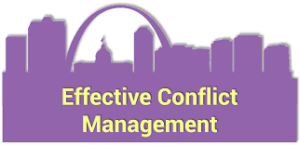Introduction:
Dealing with difficult behavior in the workplace is a challenging yet essential task. Addressing issues like passive-aggressive behavior, hostile attitudes, and toxic work environments promptly and effectively is crucial for maintaining a positive workplace atmosphere. In this comprehensive guide, we explore strategies for handling difficult behavior and emphasize the importance of conflict resolution. Whether you’re a manager or an employee, understanding these techniques can foster a harmonious work environment.

Section 1: Addressing Passive-Aggressive Behavior
Passive-aggressive behavior, though subtle, can disrupt workplace harmony. It’s crucial to identify these behaviors early. Encourage open communication and honesty among employees. A supportive workplace culture, combined with conflict resolution training for managers, can prevent passive-aggressive traits from escalating into significant conflicts.
Section 2: Dealing with Hostile or Aggressive Behavior
Hostile and aggressive behavior demands immediate attention. Managers should intervene calmly, acknowledging the individual’s feelings while addressing the root cause directly. Encouraging constructive expression of feelings, promoting empathy, and cultivating a positive workplace culture can prevent hostility and aggression, fostering healthy interactions.
Section 3: Managing Toxic Behavior
Toxic behavior, including bullying and manipulation, can create a toxic work environment. Identifying these behaviors through observation and employee feedback is crucial. Address the issue directly, set clear boundaries, and enforce company policies. Cultivating open communication, trust, and teamwork discourages toxic behavior, fostering a positive workplace atmosphere.
Section 4: Importance of Conflict Resolution

Effective conflict resolution is pivotal for a healthy workplace. It promotes open communication, mutual respect, and collaboration. By resolving conflicts promptly, organizations enhance employee morale, productivity, and overall performance. Conflict resolution training and a commitment to addressing issues constructively can create a positive work environment.
Section 5: Positive Impact on Workplace Environment
Effective conflict resolution enhances employee engagement and collaboration. It improves communication, problem-solving skills, and decision-making processes. Addressing conflicts positively fosters respect and inclusivity, leading to increased job satisfaction and loyalty among employees.
Section 6: Positive Effect on Performance
Proactive conflict resolution positively impacts team dynamics. Addressing conflicts promptly motivates employees, enhancing engagement and teamwork. It builds trust, encouraging open communication and collaboration. Ultimately, resolving conflicts positively improves decision-making, organizational efficiency, and overall performance.
Section 7: Gaining Respect and Trust
During conflict resolution, remaining impartial and actively listening to all parties rebuilds trust. Encourage open dialogue, allowing everyone involved to express their perspectives. Following through on commitments demonstrates commitment to a collaborative solution, fostering respect and trust among team members.
Conclusion:
Addressing difficult behavior in the workplace through effective conflict resolution strategies is fundamental to creating a positive, productive, and respectful work environment. By promoting open communication, empathy, and mutual respect, organizations can build trust, enhance teamwork, and ultimately achieve long-term success. Investing in conflict resolution skills benefits both employees and the organization, fostering a workplace where everyone feels valued and appreciated



